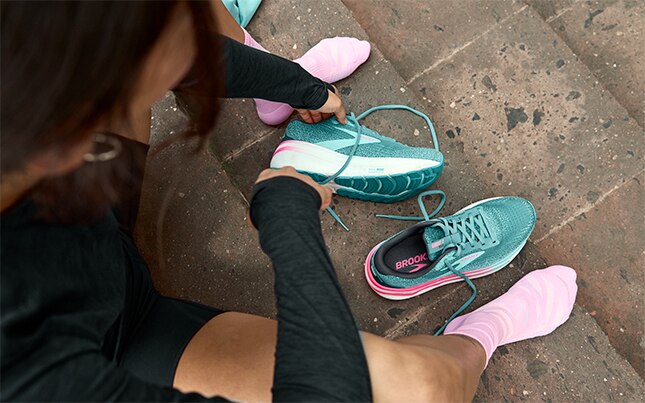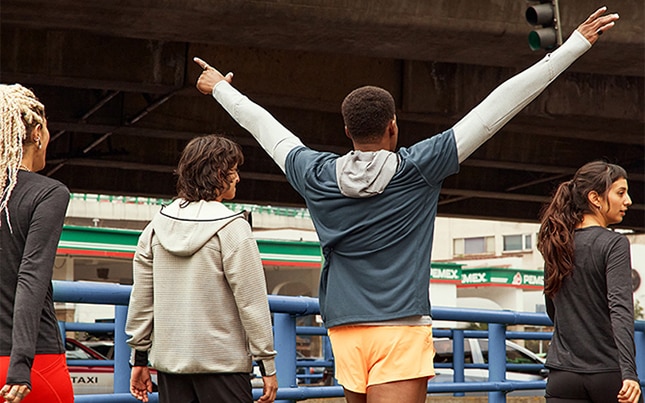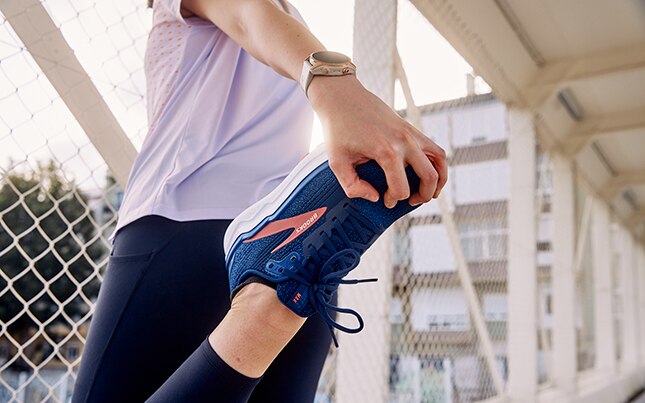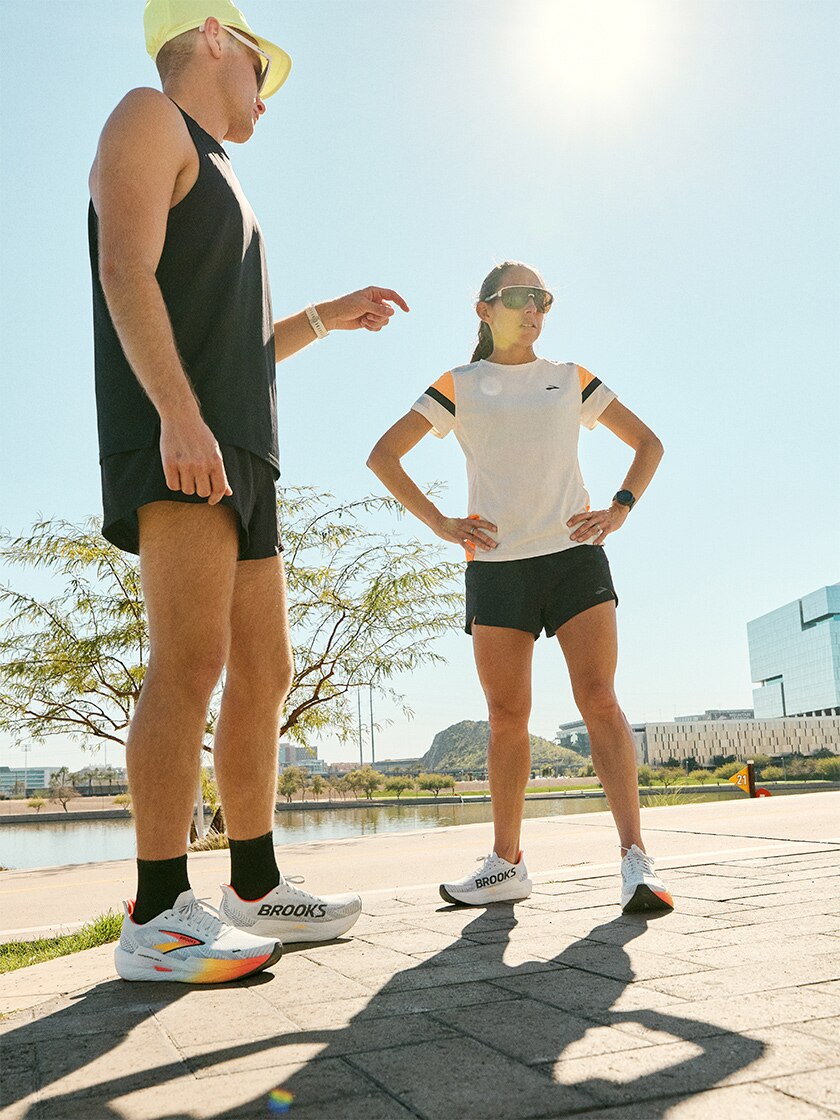10 Running Tips for beginners: Start your running journey today!

You don’t need much to become a competent runner. Consistency and persistence are key — and if we’re being honest, great gear helps, too. To give you a leg up, we’ve put together some pearls of running tips for beginners to help you on your runs.
Summer & winter running tips for beginners
Whether it’s a heatwave or snow is falling, running can be tricky in both summer and winter. Need some summer running tips? We’ve got you covered. When it’s hot outside, plan your run for the coolest parts of the day - even if that means heading out earlier or later than usual. Try not to run between 12 and 3pm, when it’s the hottest part of the day. Consider taking some water with you on your run, even if you don’t usually run with a bottle. And don’t forget to slather on the sunscreen.
And what about running when it’s cold, dark and wet outside? Here are our top winter running tips for beginners. Invest in a good head or chest torch for dark runs, as well as visible running gear so you can be safe and be seen. Wrap up warm - but not too warm, as you’ll soon start to heat up as you move. Worried about running during the holidays? Don’t be - use all that extra food as fuel, and maybe make a couple of running dates with family and friends to help you get out there and enjoy yourself.
10 beginner tips to run happy
You’ll learn most of what you need to know by just getting out there and running often, but it doesn’t hurt to have some expert advice in your back pocket. Here are some of our favourite running tips for beginners.

1. Train your whole body
Yes, we primarily run with a specific set of muscles, but it’s a good idea to train your whole body. Muscular imbalances can lead to injury, so consider cross training on non-running days. Throwing in a core or arm workout will help keep your whole body fit and ready to withstand the rigours of running.
2. Take recovery days seriously
Go hard! Just not all the time. Recovery days are essential to keeping you healthy. Every time you run, your body breaks down a tiny bit, so taking a day or two during the week to let your body heal will get you back into high gear on your next run. If you’re the type of person that hates naps or lounging around, go for low-impact activities like yoga or swimming on recovery days. Read more if you want to know how often you should run as a beginner.

3. Get a good night’s rest
Stop doom scrolling on your phone and disengage from your 15th binge watch of “The Office.” Good sleep is essential for everyone, but if you’re training hard your body and brain will not be able to function properly without adequate sleep. Aim for at least eight hours of the good stuff.
4. Eat right, run right with these beginner nutrition tips
The best beginner running nutrition is based on a balanced diet of carbohydrates, protein, and good fats which are the fuels you need to power your body properly for your runs. It’s totally acceptable to indulge every now and again but remember to listen to your body while you’re training to find out what’s working and what isn’t. Meal planning is a good way to keep track of what you’re putting into your body in preparation for runs and races.
5. Remember the two-hour rule
To avoid stomach issues that will slow you down, avoid eating big meals or drinking too much within two hours of your run. Try to stock up on carbs and protein early. Think turkey sandwich rather than fettucine alfredo.
6. Treat your body right with warm-ups and cool downs
Let your body know you’re about to dig into some serious activity by warming up before your run. Brisk walks, slow jogs, and lots of stretching will do the trick. The same goes for when you’re finished. Do you yank the power cable out of your computer when you’ve finished using it? No, you know better. Take the same approach with your body.
7. Don't forget your breathing when running
Many experienced runners agree that you should be able to speak in full sentences when you run. We’re not advising you to monologue while training — our tip for breathing when running would be that you should pay attention to your breathing because it’s an important part of stabilising yourself during your run.

8. When to replace running shoes
We know you’re in love with your favourite pair of Brooks running shoes, but even good things don’t last forever. So when to replace your running shoes? Your shoes have about a 300-500 mile shelf life on them, so when you hit that mark, it’s time to replace your running shoes and find a new pair to support your run.
9. Be patient
You’ve started running and despite the initial aches and pains that come with using new muscles, you’re invigorated and feel like you’re ready to tackle your first marathon. Like, tomorrow. Hold your horses! Be patient and consistent in your training, otherwise you might end up getting hurt.
10. Ask for help
You may think about running as an individual effort, but it’s really a community sport. Don’t be shy about asking for help from other runners. Get tips on gear, where to go for the best runs, meal plans, and much more.

It’s go time!
Now that you have the beginner tips to help you on the run, get out there and train! We have running plans for beginners covering 5K and 10K races. Even if organised races aren’t a thing right now, these guides are excellent training manuals. Use them to learn how to train and then try a virtual race on your own.
If you need new gear to help you get started, check out our Shoe Finder and Bra Finder.
